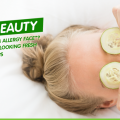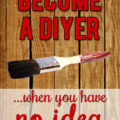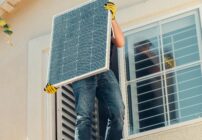It’s important to take care of your hearing health. Even if you’ve been diagnosed with hearing loss, you want to ensure that it doesn’t deteriorate over time unnecessarily and one of the best ways to do that is with the help of a hearing aid. These devices, as life-changing as they are, are made of some sensitive technology that can be prone to issues under the right circumstances. Here, we’re going to look at some of the threats you should be looking out for, and what you can do to protect against them.
Moisture
Excessive moisture is probably the greatest threat to the hearing aid. You’re going to be just fine wearing your device in most places except for the bathroom. You should try to leave it out of those as much as possible and avoid being outside if it’s heavily raining. Some hearing aids do offer some level of waterproofing, but you shouldn’t assume that yours do. Make sure that you keep your hearing aids in their dehumidifying case when not wearing them and take the batteries out to make sure that they don’t corrode due to the buildup of moisture over time Otherwise, moisture can infiltrate the devices and cause all sorts of issues, including short circuits.
Dust and wax
Dust, wax, and other debris can build over the surface of hearing aids over time. You have to make sure that you’re beating them back. Mostly, this is going to mean that you ensure you clean them each and every day. Your hearing aid should come with one, but you can find a cleaning kit at most larger healthcare stores or order them online. A buildup of wax, dust, and other debris can clog up components of the hearing aids, leading to malfunctions, and can attract excess moisture.
Feedback
Feedback isn’t so much an issue that can damage your hearing aid, as it is a symptom that there is already an issue. Many of the most common hearing aid repairs involve fixing feedback, which typically happens due to incorrect amplification settings or when the receiver is moved too close to the microphone. If you experience feedback, which typically sounds like a high whistling sound, you shouldn’t ignore it or assume it will go away. You can get it fixed by a hearing health expert easily enough.
Dropping them
Lastly, you should be mindful of the risks involved in dropping your hearing aid. Even dropping a couple of feet onto a hard surface can be enough to do real damage to your hearing aids. As such, when you’re taking them out or putting them in, it’s a good idea to do it on a soft texture, such as on your bed. Try to be very mindful that you don’t drop them at any point, such as holding them in a cupped hand rather than between your fingers. Retention clips and cords can prevent them from falling out of your ears if they are prone to doing that, too.
Hearing aids are getting more resilient and better equipped to handle different environments over time but, even so, there is always going to be a need to care for them over time.
Related Posts
- How to adjust to your new hearing aids
It’s important to take care of your hearing health. Even if you’ve been diagnosed with…
- The Importance of Looking After Your Hearing Health
Your hearing matters a lot and a mistake that you’ll certainly want to avoid making…
- Top Tips for Protecting Your Hearing
Image source No matter what age you are, there are ways you can protect your…


















